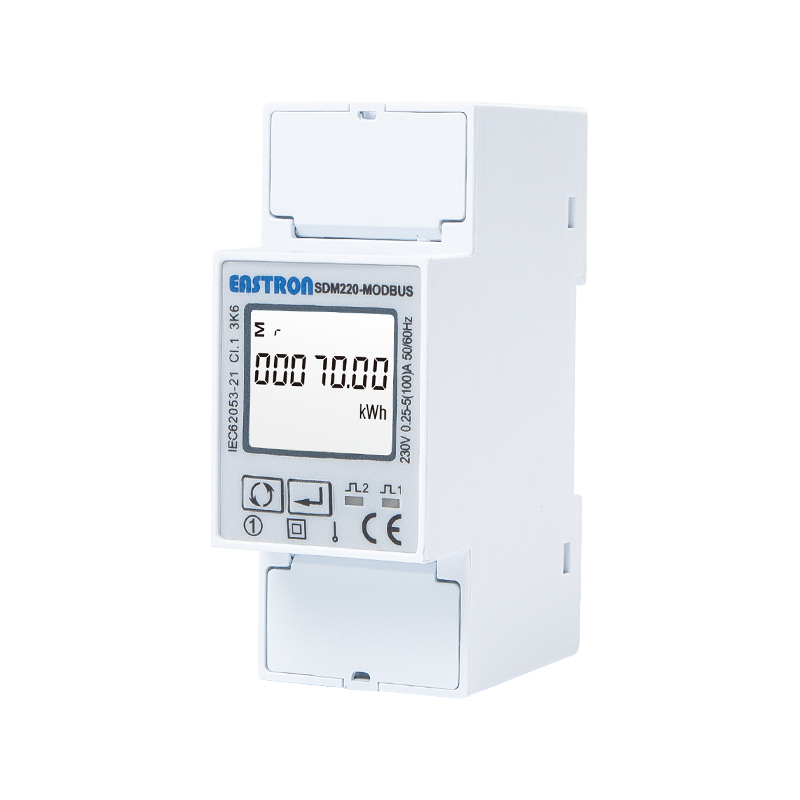Product Consultation
Your email address will not be published. Required fields are marked *

Join Eastron at The smarter E Europe 2025: Discover Smarter Energy Meaurement Solutions
Apr 02,2025
Eastron Secures China's First UL Certification for AC Smart Meters, Leading the Global Market
Apr 24,2025
What are the key technological advancements in energy meters that Eastron has integrated into its products to enhance accuracy and reliability?
Apr 23,2025Multi-function energy meters use various types of sensors to detect electrical parameters such as voltage, current, power, and energy consumption. Here are the common sensor types and how they function:
Current Transformers (CTs):
Operation: CTs are used to measure alternating current (AC). They work by producing a current in their secondary winding proportional to the current flowing in the primary winding.
Types:
Split-Core CTs: These can be easily installed around existing conductors without disconnecting them, making them ideal for retrofit applications.
Solid-Core CTs: These are more accurate but require the conductor to be disconnected for installation.
Rogowski Coils:
Operation: A Rogowski coil is an air-cored coil placed around a conductor. It measures the rate of change of current through electromagnetic induction.
Advantages: These coils are flexible, easy to install, and provide accurate measurements over a wide range of currents.
Shunt Resistors:
Operation: Shunt resistors measure current by detecting the voltage drop across a known resistance placed in series with the load. The voltage drop is proportional to the current flowing through the resistor.
Applications: Shunts are used for both direct current (DC) and AC measurements, particularly in low-current applications where high accuracy is needed.
Hall Effect Sensors:
Operation: Hall effect sensors measure current by detecting the magnetic field generated by the current flowing through a conductor. The sensor produces a voltage proportional to the magnetic field strength.
Advantages: These sensors are used for both AC and DC measurements and are known for their ability to measure high currents without direct electrical contact with the conductor.

Voltage Sensors:
Potential Transformers (PTs):
Operation: PTs step down high voltages to a lower, measurable level. The stepped-down voltage is proportional to the primary voltage, allowing accurate measurement.
Applications: Used primarily for high-voltage applications to ensure safe and accurate voltage measurement.
Voltage Dividers:
Operation: Voltage dividers use resistors or capacitors to divide the voltage to a lower level suitable for measurement.
Applications: Common in low to medium voltage applications for direct measurement.
Digital Sensors:
Operation: Digital sensors convert analog signals (e.g., current, voltage) to digital data using analog-to-digital converters (ADCs). This allows for precise and accurate digital processing.
Advantages: Enhanced accuracy and easier integration with digital systems for advanced data analysis and communication.
Temperature Sensors:
Operation: These sensors measure the temperature of critical components within the meter to ensure proper functioning and prevent overheating.
Types: Thermocouples, thermistors, and RTDs (resistance temperature detectors) are commonly used.
Optical Sensors:
Operation: Optical sensors use light to detect current flow or voltage changes indirectly by measuring physical changes in the conductor or surrounding components.
Applications: Useful in environments with high electromagnetic interference where traditional sensors might fail.
These sensors collectively enable the multi-function energy meter to accurately measure and monitor various electrical parameters, ensuring reliable performance and comprehensive energy management.
Your email address will not be published. Required fields are marked *
We develop and produce high performance electricity meters, power analyzers, current sensors, communication modules and management systems. China Custom Smart Meters Manufacturers and Factory
Address: NO 52, Dongjin Road, Nanhu, Jiaxing, Zhejiang, China
Copyright @ Eastron Electronic Co., Ltd. All rights reserved Electricity Meters Manufacturers
